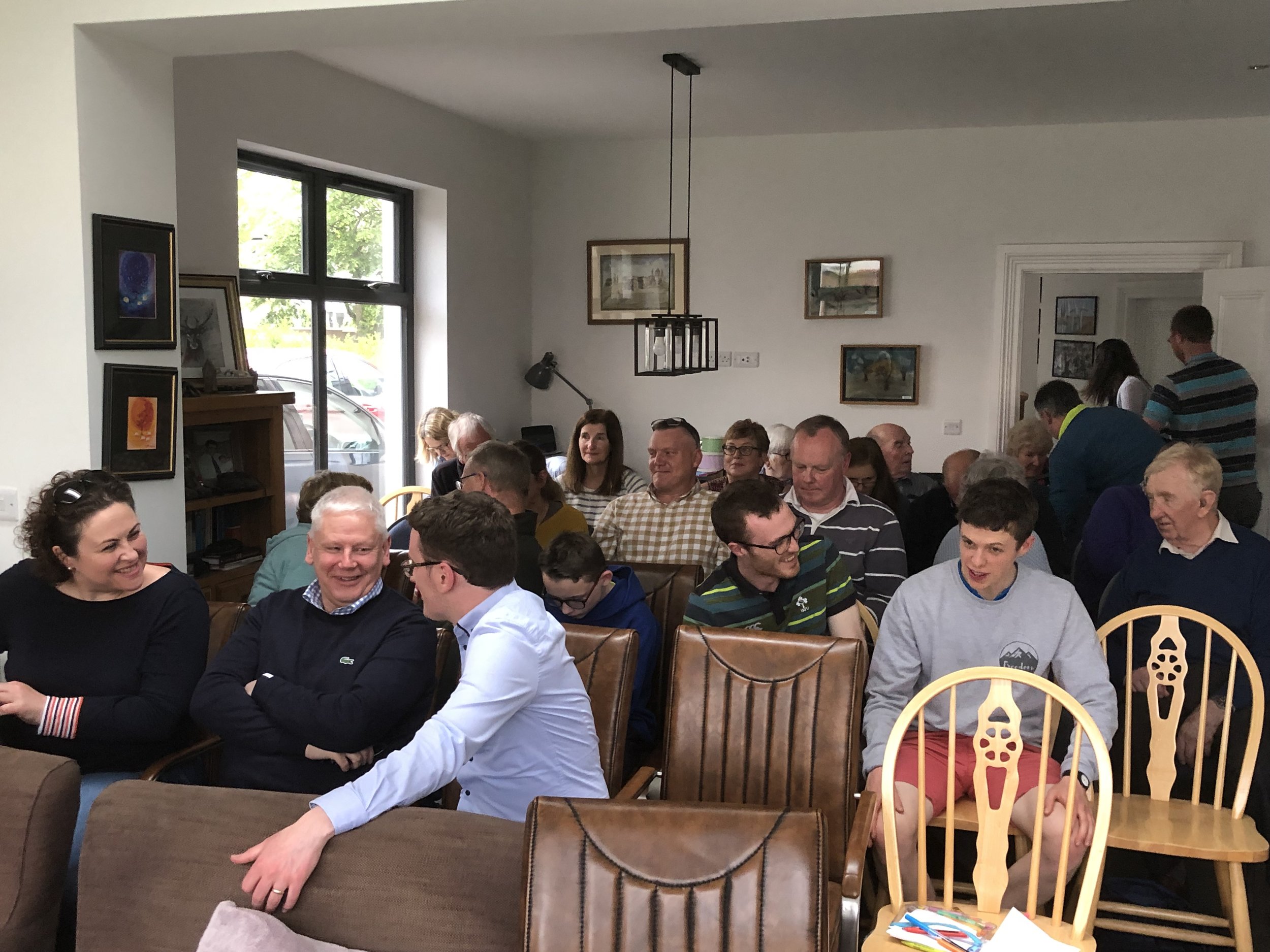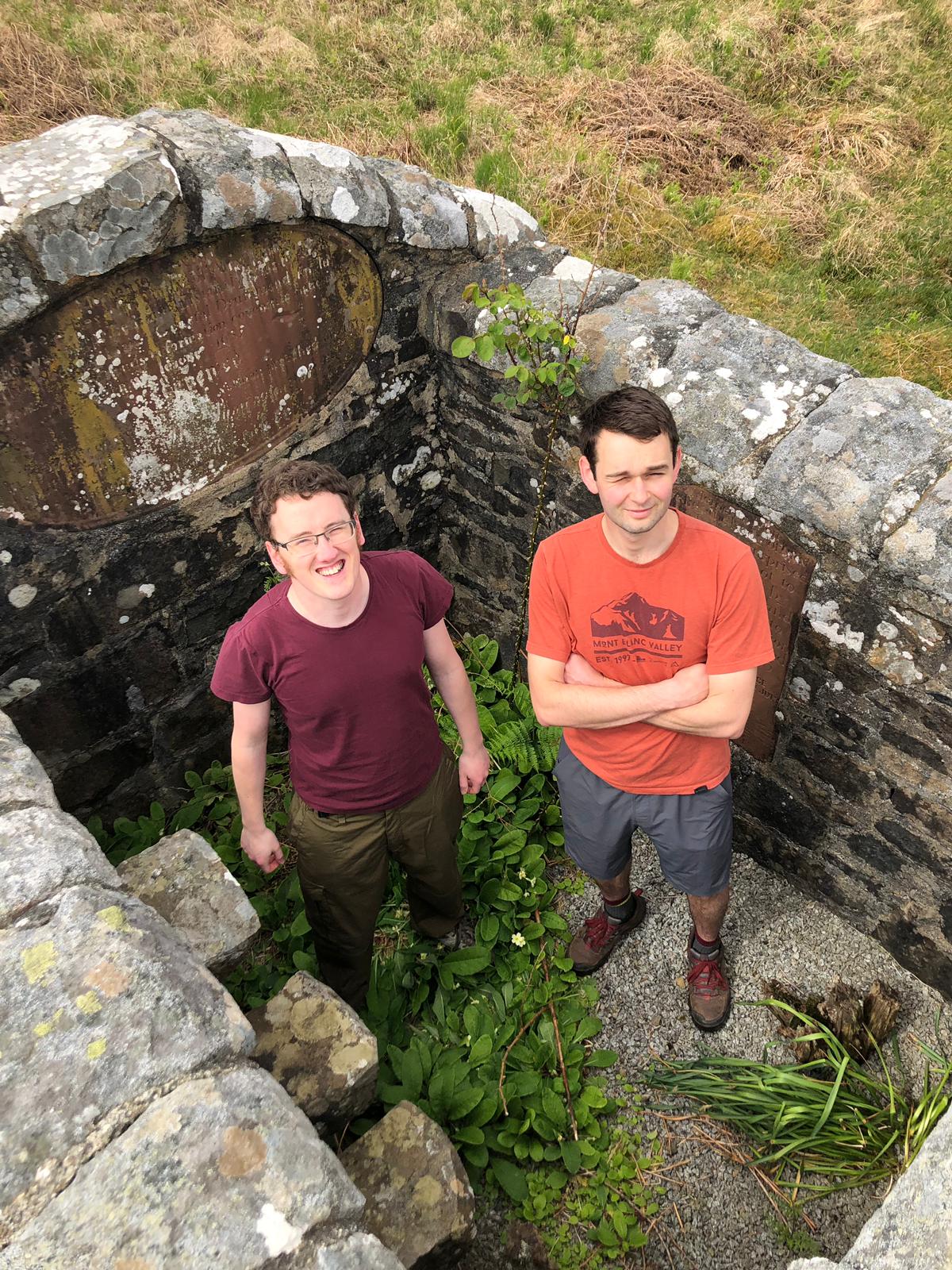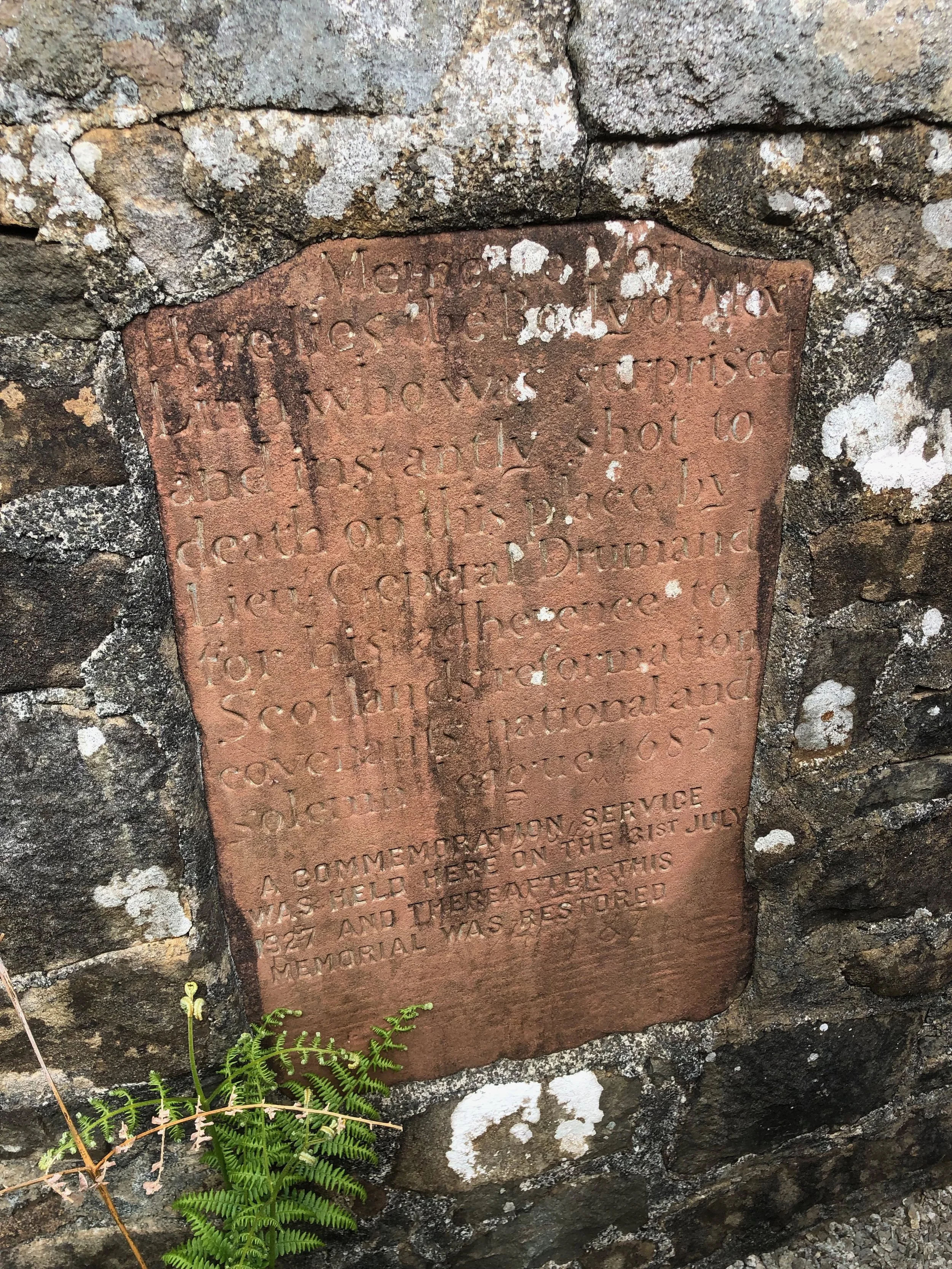This past week, Stephen represented the Scottish RP Church at the Irish RP Church’s annual Synod meetings. This year Synod was held in Knockbracken RP Church, where Stephen had worked as an assistant for a year before coming to Stranraer.
The Synod began on the Monday night with a sermon by the outgoing Moderator, Rev. Andrew Kerr (Knockbracken). Rev. Mark Loughridge (Letterkenny and Milford), whose brother Peter is minister in North Edinburgh, was elected Moderator for the year ahead.
On Tuesday night, Stephen gave an update on the work of the Scottish RP Church, before preaching to begin the Wednesday morning day of prayer.
The Moderator and the American RP delegate then travelled across to Scotland for the meeting of our own Presbytery on Friday.
Stephen pictured with the Moderator and other delegates - William Macleod (FCC), Kevin Bidwell (EPCEW) and David Weir (RPCNA).
The Synod finished on the Wednesday night by commissioning Isaac Berrocal for mission work in Almuñécar and Nerja in Spain, a region where 90% of people have never heard the gospel.
On the weekend prior to the Synod, Stephen spoke at Knockbracken’s annual church weekend on the ‘One anothers’ of the Bible.
The most well-known name associated with Knockbracken is Thomas Houston, who was ordained there not long after William Symington began his ministry in Stranraer. Houston spent his whole ministry (1828 - 1882) in Knockbracken and Stephen spent a year studying his life for a Masters thesis in Irish history. Houston was a prolific author, whose book on prayer meetings has recently been digitised.
The current minister in Knockbracken is Andrew Kerr, who was the 2018 Moderator of Synod. Andrew writes regularly for the Gentle Reformation blog. Below is part of an interview he did for a recent documentary on the Welsh minister Martyn Lloyd-Jones:



















